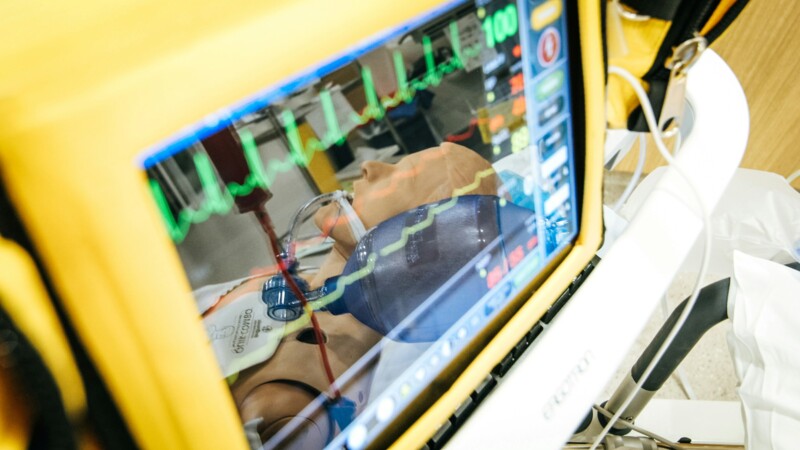Speaking during the launch, Melanie Leonhard, Senator for Economics and Innovation, noted: "New technologies and fresh ways of thinking can help overcome hurdles such as digital transformation, skills shortages and climate change." Cross-sector collaboration is one new way of thinking and is being cultivated by the clusters across Hamburg, she stressed, and cited KLIMAready as an example. Seven industrial clusters are helping companies to transform the energy sector and adapt to climate change. A survey presented in February identified the three biggest hurdles to climate resilience namely funding or high implementation costs (66%), regulatory uncertainty (52%) and additional workloads (48%). Solutions are now being developed in an interdisciplinary workshop called the "cluster bridge". That foresees sharing best practices, undertaking joint research projects and cross-industry training all of which are pivotal to change, according to those surveyed.
Delegates at the Cross Innovation Day on June 12, 2025 donned VR headsets to explore a visionary hygiene design concept for hospital wards or to try out an aircraft seat suspended between the ceiling and floor. Aircraft furniture, developed as part of the FAIRcraft project and based on the cradle-to-cradle principle, is surprisingly comfortable. Like the hygiene solution from Albis Plastic and Drägerwerk, this is just one of many novelties emerging from the Hamburg Kreativ Gesellschaft’s recent Cross Innovation Lab in the Oberhafenquartier. The scheme brings together employees and creatives to come up with bright new ideas in interdisciplinary teams and is proving a highly successful co-operative approach.
Co-operation pivotal
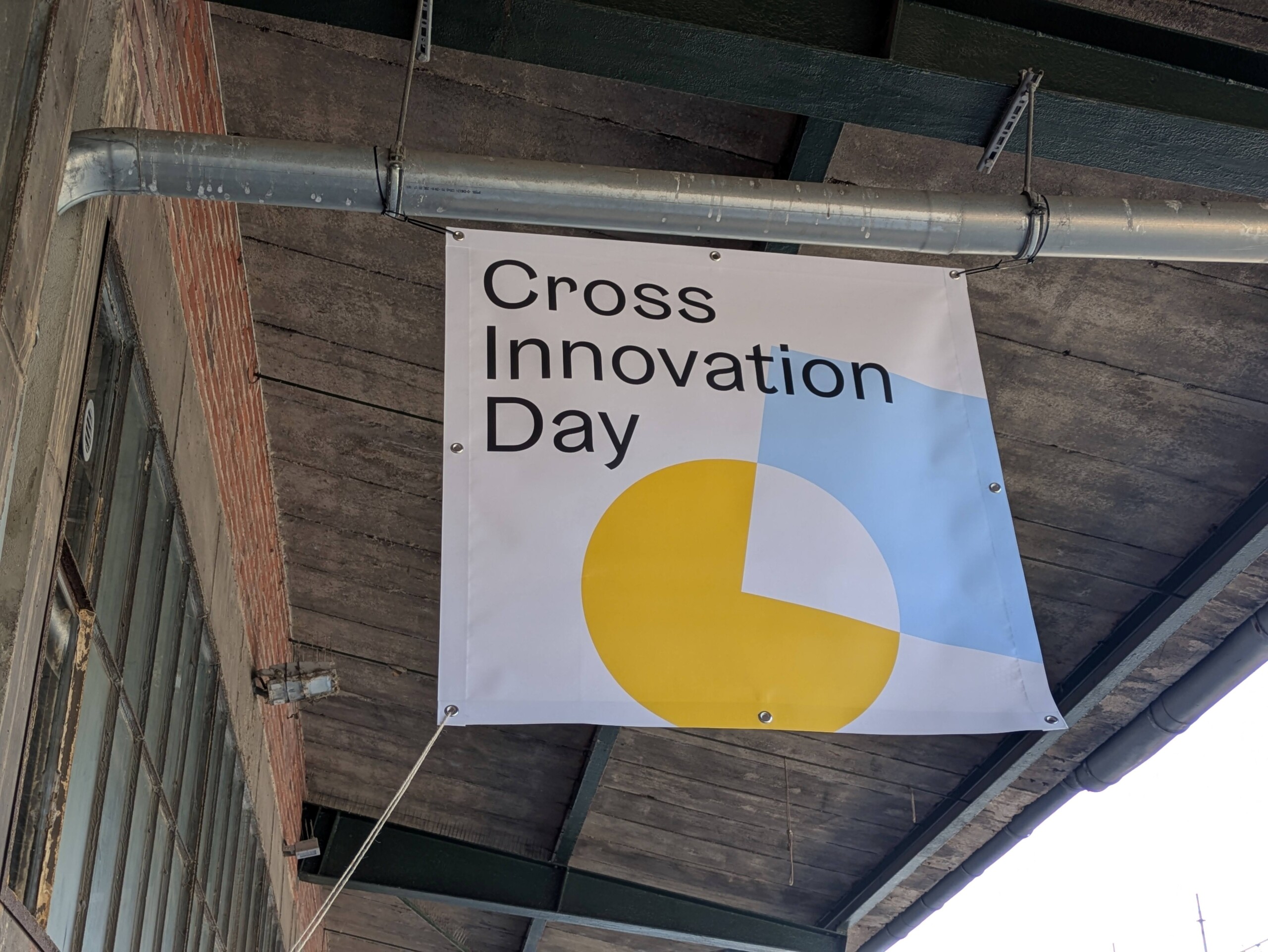
Multi-perspectivity as catalyst
Creative professionals are key to innovation, according to Egbert Rühl, Managing Director of Hamburg Kreativ Gesellschaft. "Stakeholders in the creative sector specialise in innovation - and their creativity can drive innovation in other sectors." To harness this potential, Hamburg Kreativ Gesellschaft has assembled a pool of 70 creatives who work in e.g., the Cross Innovation Lab, and the Attack your Business and Pop-up office set ups. "The multi-perspectivity of these set-ups trigger thought processes that lead to new business models, and a change of attitude in companies and organisations," Rühl said. This ability to change is important in view of the present social transformation. Simply adapting to changing circumstances is no longer enough; rather, it involves reorganising procedures and systems.
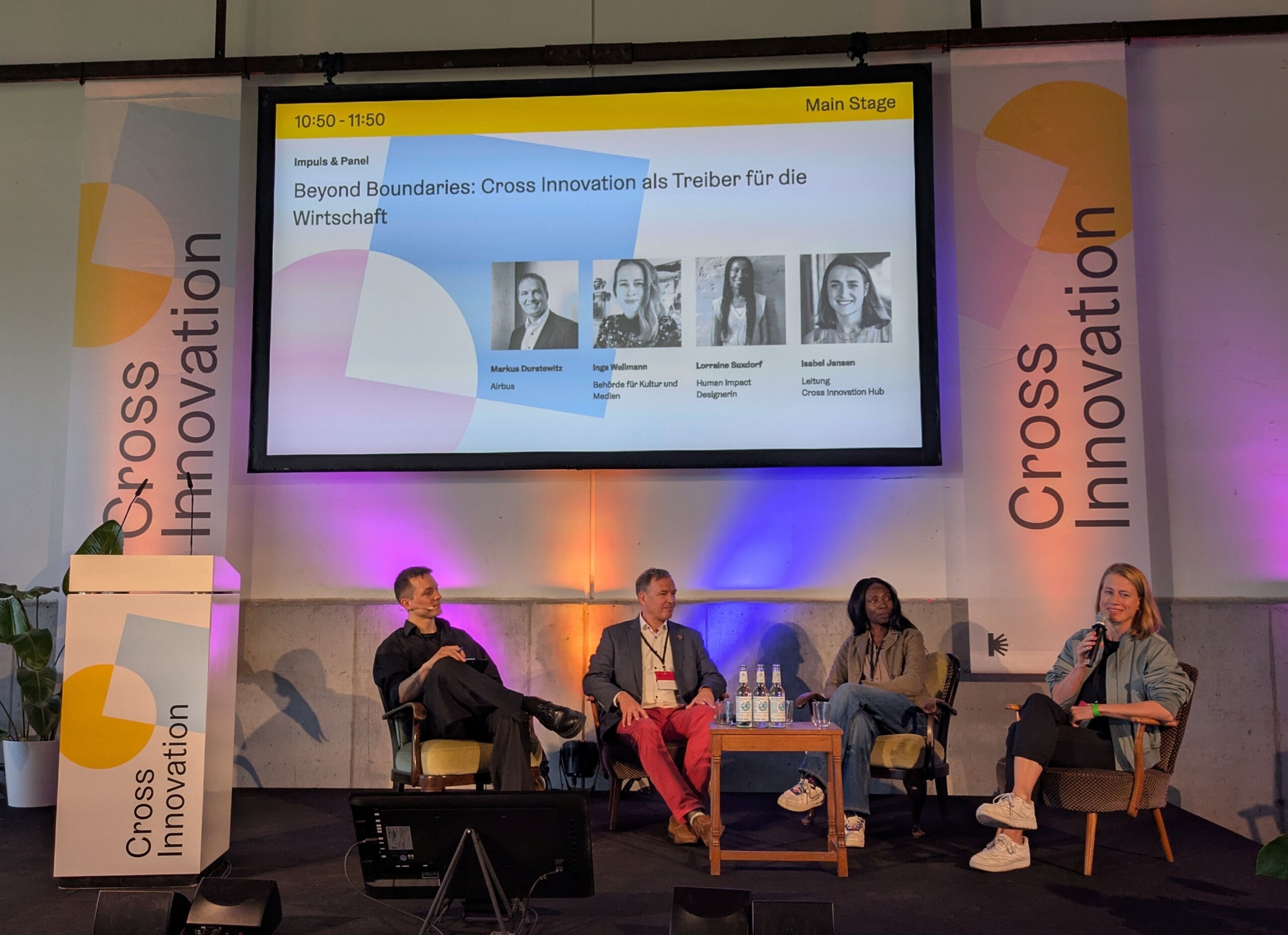
AI as a product partner
Markus Durstewitz, Airbus's Senior Director of Innovation, has had positive experiences collaborating with creative professionals as part of the Cross Innovation Lab. The company uses AI to optimise procedures and drive innovation. "AI is a partner for us in the creative process. Only time will tell whether it is a reliable partner." The AI Act is crucial to shaping a framework that ensures AI developments are legally sound and economically viable. "I am firmly convinced that this will succeed," Durstewitz stressed. Progress can only be made jointly, he added, citing the hydrogen economy as an example. As part of the "ZEROe" project, Airbus has postponed plans to fly hydrogen-powered commercial aircraft by 2035. "The aircraft alone is not enough. As long as there is a lack of infrastructure and social acceptance, the goal of climate-neutrality in future cannot be achieved. It can only be achieved together."
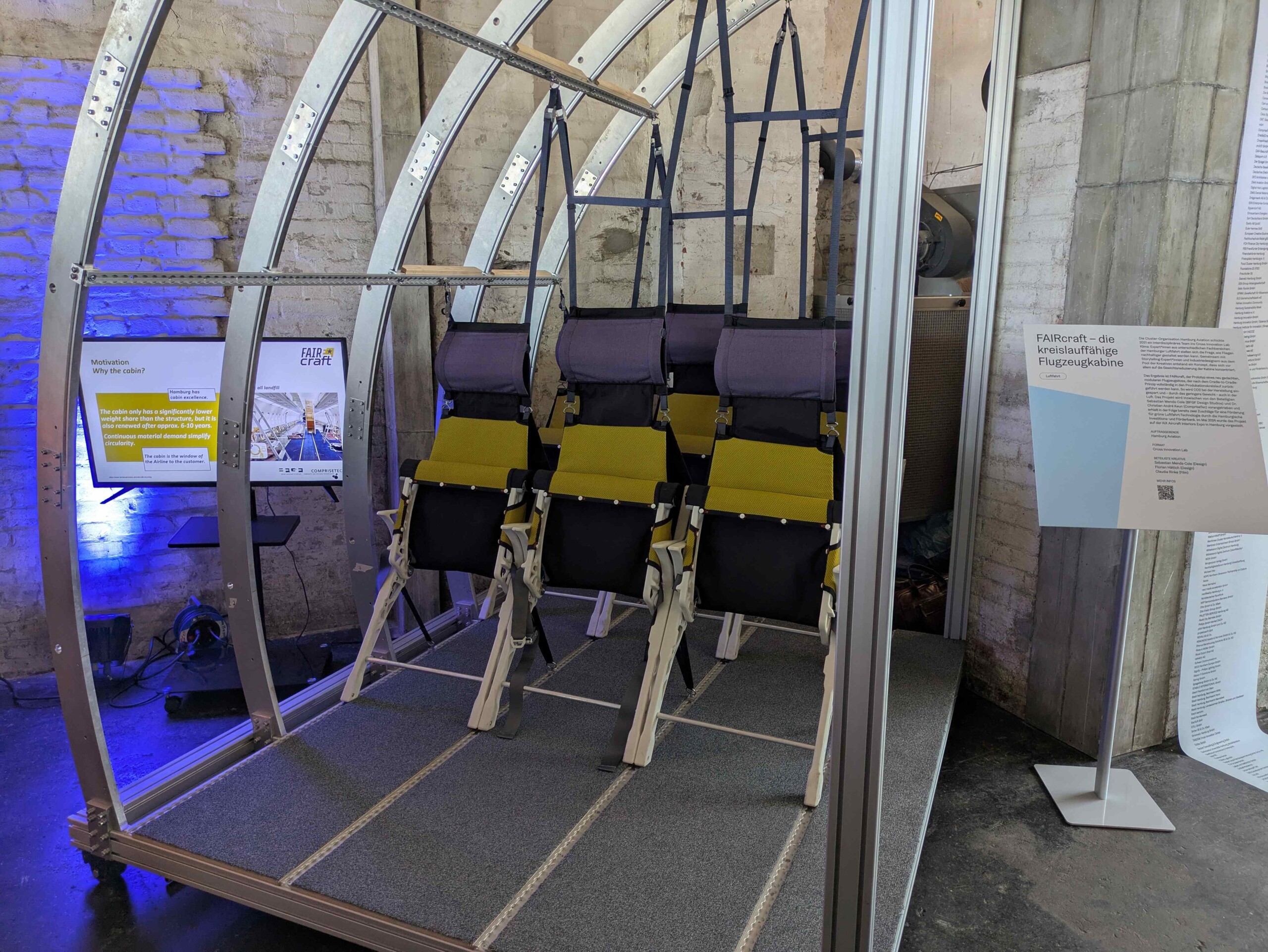
Rethinking instead of redeveloping
The Faircraft project vividly illustrated joint achievements on Cross Innovation Day. Seven stakeholders, including Airbus, have joined forces with three creative professionals to come up with a recyclable aircraft cabin, incorporating everything from material ecology and modular toilet systems to textile aircraft seats. "We have successfully developed lightweight, safe and comfortable seats that can compete with the classic industrial version in terms of price," said Sebastian Mends-Cole, co-founder of the Circular Design Hub Hamburg. After passing all the required crash tests, the project is now in the certification process. "The industry has already signalled clear interest."
While the co-operative project work proved successful, this changed perspective is characteristic of the entire circular economy. "It's about rethinking products and services. That also includes customer loyalty." Take, for instance, the washing machine, the ultimate household helper. "Rather than selling appliances, manufacturers could offer their customers a 20-year guarantee on fresh laundry in future." This change in perspective would encourage manufacturers to develop machines that are both durable and repairable. Each machine would remain the property of the company. Innovation does not necessarily mean rethinking procedures or products; rethinking is also part of the process.
ys/pb
Sources and further information
More
Similar articles

Creative industries transitioning to digital economy
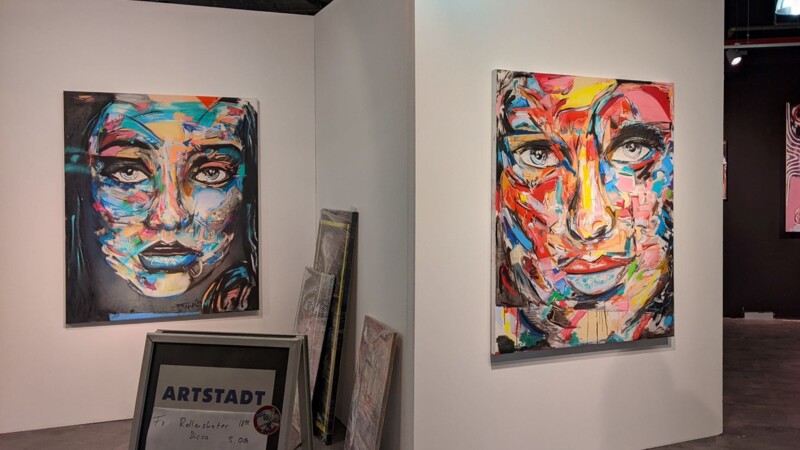
Creative industries adopting cross-innovation approaches
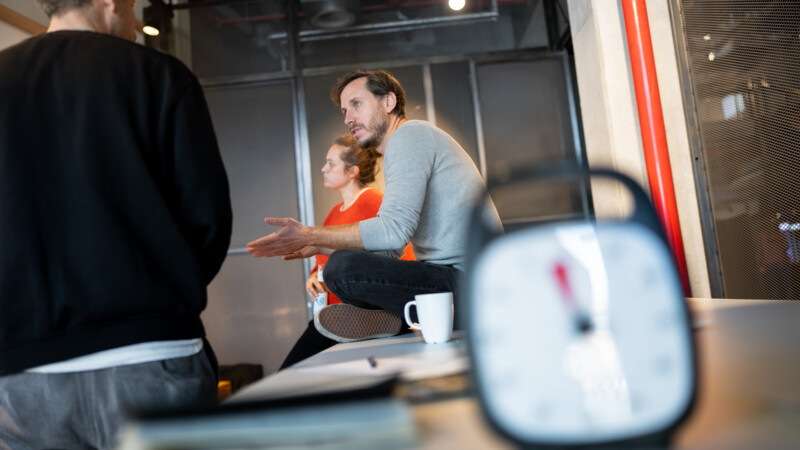
Hamburg's creative innovation partnerships
